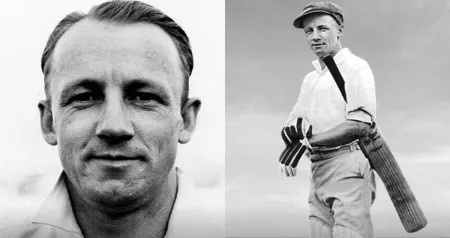Few names in world sport command the same reverence as Sir Donald Bradman. Known universally as “The Don”, Bradman’s legacy goes far beyond cricket. He was not just a batsman but a symbol of excellence, resilience, and national pride for Australia during difficult times. His near-mythical batting average of 99.94 still stands untouched and is widely regarded as the greatest achievement in the history of competitive sport.
From stadium roars to online scores – join the Asiaplay sports gaming platform and keep your cricket fever alive.
Early Life and Introduction to Cricket
Donald George Bradman was born on 27 August 1908 in the small town of Cootamundra, New South Wales. He grew up in Bowral, where his love for cricket blossomed. A famous story from his childhood tells of young Don honing his reflexes by hitting a golf ball with a cricket stump against a water tank. This relentless self-practice helped him develop the extraordinary hand-eye coordination that later stunned the cricketing world.
By his teenage years, Bradman’s talent was undeniable, and he quickly rose through local cricket ranks.
Test Debut and Meteoric Rise
Bradman made his Test debut for Australia in 1928 against England at Brisbane. Despite a modest start, he quickly proved himself with a brilliant 118 in his second match at Melbourne. From that point onward, his career skyrocketed.
By the 1930 Ashes series in England, Bradman had already become a household name. He scored a record-breaking 974 runs in the series, including an astonishing 334 at Headingley. This remains one of the most dominant batting performances in Test history.
Career Highlights of Sir Donald Bradman
| Statistic | Value |
|---|---|
| Test Matches Played | 52 |
| Innings Batted | 80 |
| Total Runs Scored | 6,996 |
| Batting Average | 99.94 |
| 100s (Centuries) | 29 |
| 50s (Half-Centuries) | 13 |
| Highest Score | 334 |
| 200+ Scores (Double Tons) | 12 |
| 300+ Scores (Triple Tons) | 2 (334, 304) |
| Ducks (0 runs) | 7 |
| Test Debut | 1928 vs England |
| Last Test | 1948 vs England |
The Symbol of Hope During the Great Depression
Bradman’s rise coincided with the Great Depression of the 1930s, a period of severe hardship for Australians. His success on the cricket field gave people something to cheer about, lifting national morale. For many, Bradman was more than just a cricketer — he was a beacon of hope, resilience, and national pride.
Final Innings and Retirement
Bradman’s career ended in 1948, when he captained the legendary “Invincibles”, an Australian team that went undefeated on their tour of England.
In his final Test innings at The Oval, Bradman needed just four runs to finish with a career average of 100. However, he was bowled for a duck (0) by Eric Hollies. Despite this, his final career average of 99.94 remains one of sport’s most iconic statistics.
Beyond Cricket
After retiring, Bradman stayed involved in the game as an administrator, selector, and mentor. In 1949, he was knighted for his services to cricket, becoming Sir Donald Bradman.
His influence extended well beyond the boundary ropes. He became a national icon, admired for his humility, discipline, and sportsmanship. Even in his later years, Bradman was held in the highest regard by cricketers and fans alike.
Legacy and Immortality
-
Bradman is regarded as the greatest cricketer of all time.
-
His records remain unchallenged even in the modern era of cricket.
-
Statistically, his dominance is unmatched in any sport — his batting average of 99.94 compared to the next-best (around 60) demonstrates his superiority.
-
Monuments, museums, and awards have been dedicated to his memory, including the Bradman Museum in Bowral.
Conclusion
Sir Donald Bradman was more than just a cricketer — he was a legend who transcended sport. His numbers tell one story, but his impact on a struggling nation, his sportsmanship, and his enduring humility make him a true sporting icon.
More than two decades after his passing in 2001, Bradman’s legacy continues to inspire athletes worldwide. He remains the gold standard of sporting excellence, a benchmark that may never be surpassed





